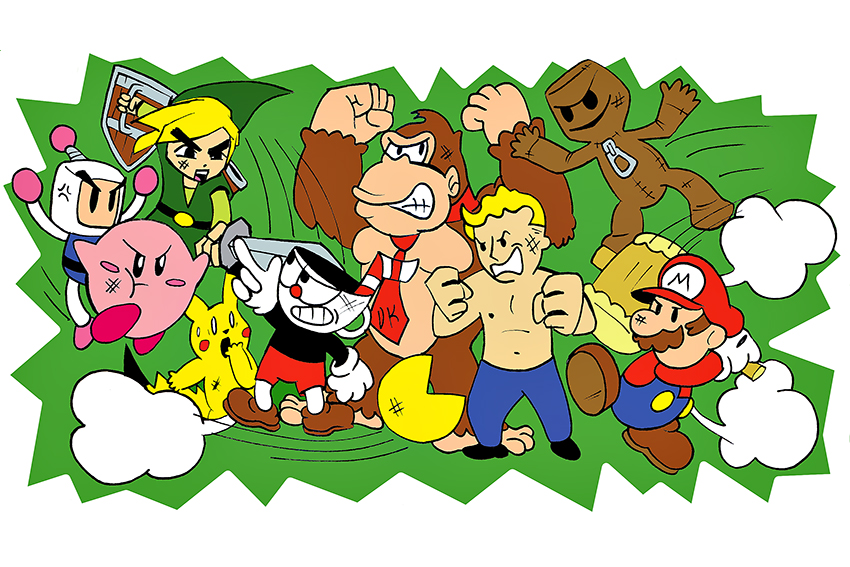Between Mario, Sonic and Link, nostalgia gaming has bullied out the competition, leaving some gamers worried that the industry is heading toward a uniform and gray dystopian future — and not the fun kind with zombies and lasers.
“Nostalgia gaming” describes the tendency for gamers to play rebooted or serialized versions of existing games. Although this might be a profitable strategy for game developers, many fear it is taking over the industry.
Among those who are wary of the popularity of nostalgia games are members of Longhorn Gaming, a student organization that transforms Burdine into an arcade complete with video and tabletop games the first Thursday of every month.
Public relations senior Todd Warren, communications director for Longhorn Gaming, said he fears the companies gamers rely on for quality content, such as Blizzard or Nintendo, will lose their ability to keep new gamers interested.
“(Companies) are remastering or they’re making a mascot into a new title,” Warren said. “They’re not experimenting with originality, so all of our originality in the video game market has to come from indie producers.”
If the industry continues to rely on this trend, Warren said it may limit the market of games that appeal to people like him who aren’t attached to older games and characters.
On the other hand, Paul Toprac, associate director for the Game and Mobile Media Applications Program at UT-Austin, said he is optimistic about the industry’s future. The GAMMA Program is an interdisciplinary capstone project where students from the Department of Arts and Entertainment Technologies, Computer Science Department and Radio-Television-Film Department come together to create full-fledged video games.
According to Toprac, nostalgia gaming isn’t a new trend, nor is it dominating the industry. Just as the film industry knows expanding a series like “Star Wars” is a safe bet because it already has a large audience, the same is true for video games. However, new games still receive their fair share of attention.
“It’s just part of the ecosystem,” Toprac said. “These things are not that black and white because there’s a spectrum of how much you can remake it before it’s a completely new game. In some ways, that leaves room for the indies to come in and do something that’s new and innovative.”
Regardless of original or rebooted content, Toprac said storytelling has become an increasingly more important aspect of a successful video game, whereas in the past, creators relied on player interaction. Both characteristics are often more influential than nostalgia when it comes to creating a successful game.
Competition is another aspect of gaming that trumps the nostalgia card according to arcade manager Alise Tom, who runs popular Austin arcade Game Republik with her husband Chris.
“Most of our customers play newer games or want the newest games that come out. Right now PUBG — PlayerUnknown’s Battlegrounds — is by far one of the most popular games as well as Overwatch,” Tom said. “Both are first-person shooters, high graphic intensity. I would say competition brings in gamers more than anything.”
Tom said nostalgia games aren’t going anywhere and that’s not a necessarily a bad thing, they’re just another aspect of the gaming community. Whether a game is a sequel, a reboot or entirely new, the point is that they bring people together to have fun.
“(Gamers) come and they play video games together so they are not as isolated as people want to think,” Tom said. “A lot of people have many friends and will experience a lot of things — maybe even travel to places they wouldn’t normally travel to to visit friends that they know online. I think (gaming) is a great thing and it’s a large community.”















